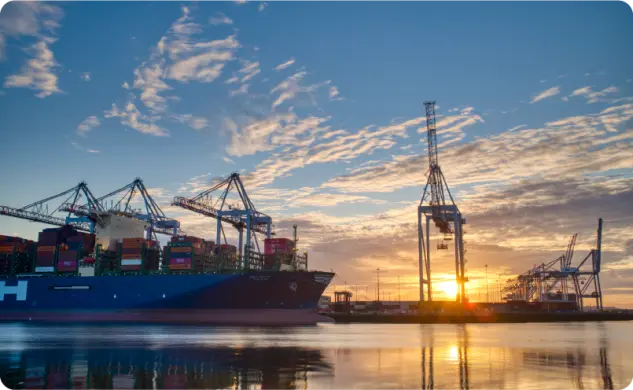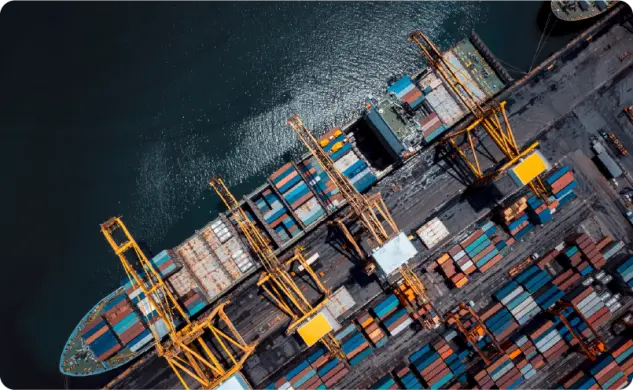EU Deforestation Regulation (EUDR).
- Mon, March 25, 2024
- 3 Minuten Lesezeit
- Updated on: October 4, 2024

Proposal for phased implementation of EUDR is approved by the European Parliament.
The obligations under the EUDR were originally supposed to come into effect by 30 December 2024 for large businesses and 30 June 2025 for micro and small businesses.
In response to requests from global partners, the European Commission had proposed an additional 12 months as a phased implementation period for the EUDR. This was approved by the European Parliament on 14 November 2024.
Why the EU Deforestation Regulation was introduced
This deforestation is mainly caused by the creation of agricultural land from which European companies then import goods. The regulation states that from 30 December 2024 any party exporting these goods to or from the European market must be able to prove that they do not come from a deforested area or are related to deforestation in any form.
Products covered by the EU Deforestation Regulation
The EUDR applies specifically to products containing the following raw materials:
- Cattle
- Cocoa
- Coffee
- Oil palm
- Rubber
- Soy
- Wood
Annex I in Regulation (EU) 2023/1115 specifies the commodity codes of the relevant commodities and products. The area from which the goods originate is irrelevant here.
Relevant commodities and relevant products may not be placed or made available on the market or exported, unless all the following conditions are fulfilled:
- they are deforestation-free;
- they have been produced in accordance with the relevant legislation of the country of production; and
- they are covered by a due diligence statement.
As defined in Article 2(15) of the Regulation, an operator is a natural or legal person who places relevant products on the market (including through imports) or exports them in the course of commercial activity.
What is a due diligence statement under EUDR?
Operators must provide a due diligence statement with the regulated products listed above. Once the declaration is signed, the operator confirms that it has exercised due diligence. Due diligence includes the following:
- the collection of necessary information, data and documents;
- risk assessment measures;
- risk mitigation measures.
EUDR information requirements for operators
Operators must provide the required information that shows compliance with the listed goods. This means that if a product, which falls under one of the categories listed above, is imported or exported, it must be accompanied by an indication of:
- whether the product is deforestation-free;
- whether the product was produced in accordance with the relevant legislation of the country of production, and
- that the product is accompanied by a relevant due diligence statement.
This information must be available for five years from the date of placing the goods on the market. The information must include a comprehensive product description, indicating the relevant raw materials used to manufacture the product. Other information requirements can be found in Article 9 of Regulation (EU) 2023/1115.
How to conduct risk assessment under EUDR
Operators carry out a risk assessment to verify the compliance of their products with the requirements of the EUDR. Products may only be placed on the market or exported if there is no or only a negligible risk of non-compliance of the relevant products. A comprehensive list of criteria can be found in Article 10 of Regulation (EU) 2023/1115.
Mitigating risks of non-compliance with EUDR
If there is a risk of non-compliance, economic operators suggest applying risk mitigation procedures to the product. In this way, the risk is reduced.
The risk mitigation measures may include:
- requiring additional information, data or documents;
- carrying out independent surveys or audits;
- taking other measures pertaining to information requirements.
Goals and benefits of the EUDR
The regulation is set up to combat deforestation. Other objectives of the rules include: preventing products bought or used by Europeans from contributing to deforestation, reducing carbon emissions for at least 32 million tonnes a year and mapping all deforestation caused by farmland.
EU Deforestation Regulation FAQ
The European Commission provides a document with frequently asked questions. The FAQ can be downloaded here.
Staying up-to-date with EUDR legislative changes
The legislation will be taking more shape in the upcoming months. We advise you to keep a close eye on the website of the EU and of Gaston Schul. We will keep you updated on any practical issues regarding the implementation of this legislation in the coming period.
Need help with the EUDR?
Our Consultancy & Advisory services can help align your business operations with regulatory compliance. Our customs experts can advise you on the procedures to be followed and the information and data to be supplied. In addition, we check whether the information provided is complete and correct.
Please contact advisors.nl@gaston-schul.com for advice and support.
Verwandte Nachrichten und Artikel
Erhalten Sie unsere Expertenmeinungen und Zollinformationen direkt in Ihren Posteingang
Mit Ihrer Anmeldung erklären Sie sich damit einverstanden, dass Gaston Schul Sie über unsere relevanten Inhalte, Produkte und Veranstaltungen informiert. Sie können sich jederzeit abmelden. Weitere Informationen finden Sie in unserer Datenschutzrichtlinie.




